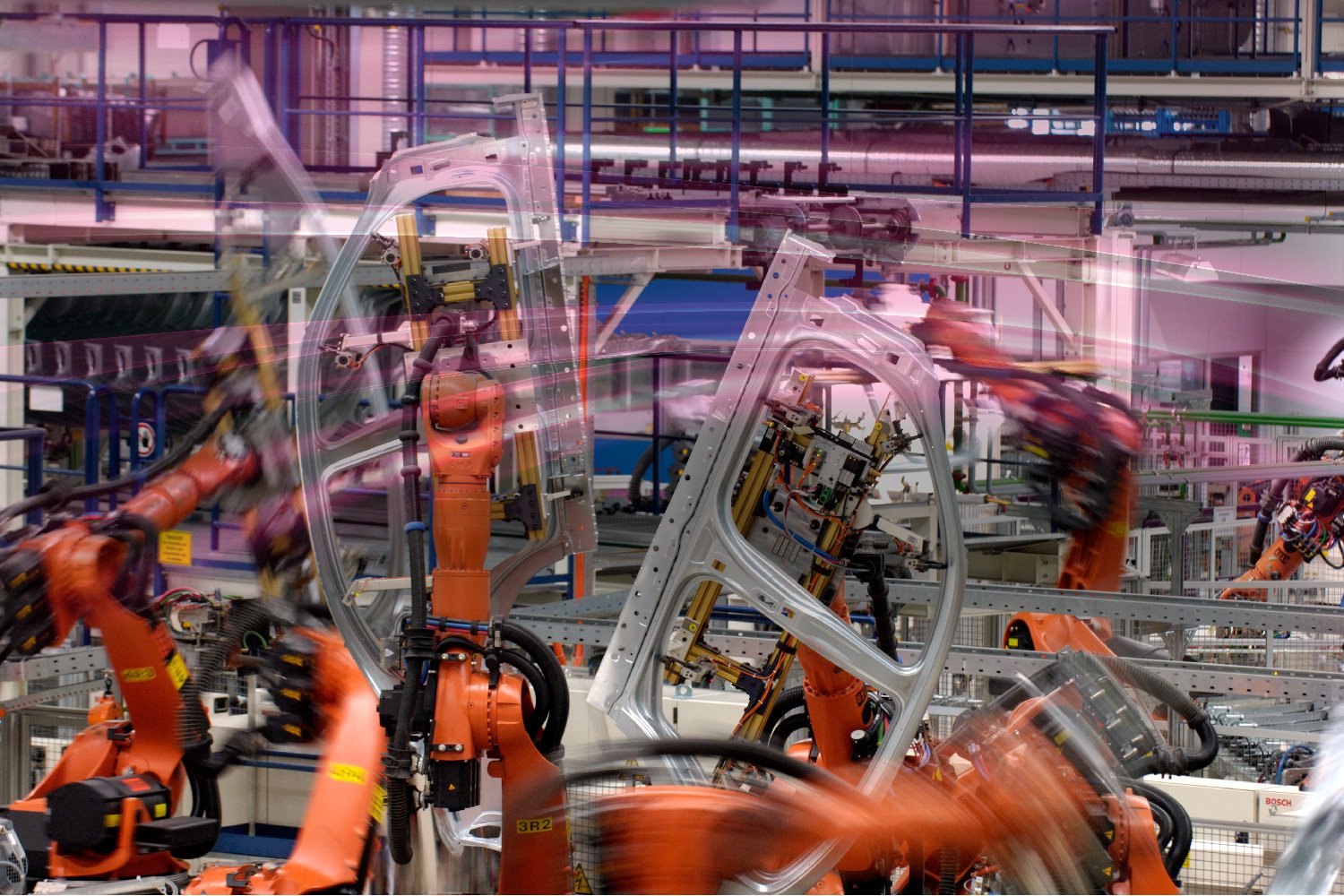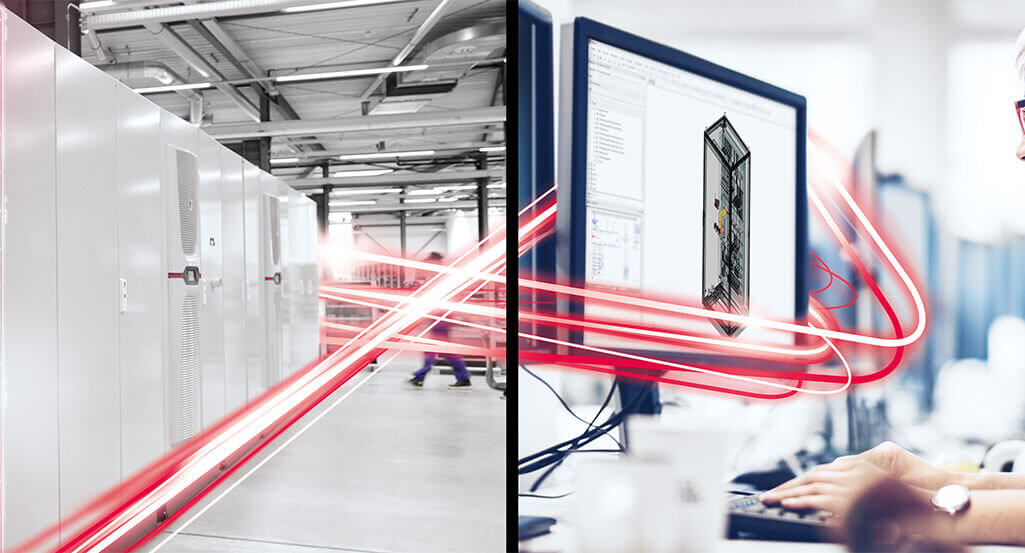The automotive industry is always in motion. Whether it’s the move toward sustainable manufacturing processes, the continued growth of electric and autonomous vehicles, or operating multiple manufacturing sites across the globe, today’s automotive manufacturers are faced with navigating a complex maze of processes to create efficient production cycles.
And this maze is further complicated by a variant-rich production landscape plagued by supply chain instability, labor shortages, and maintaining regulatory compliance across a network of disparate production locations.
The need for end-to-end transparency and visibility into every step of the design and engineering process is why so many automotive manufacturers are racing to overhaul their industrial automation frameworks. With the power of Industry 4.0 and IIoT becoming more and more realized, automotive OEMs are moving to a complete digitalized production model that unifies everything from part procurement to product delivery.
With powerful digital software programs and CAE services for machine, plant, and control cabinet engineering, EPLAN is a potent tool for automotive manufacturers and their partners in paving a simpler path in production and cutting the complexity of the current automotive industry climate.
Understanding EPLAN
Designed to provide end-to-end visibility and transparency from panel engineering to the production process, EPLAN’s Platform and Cloud-based solutions provide panel builders and machine builders with streamlined workflows for installing controls components, electrical wiring, and panel assembly, and enable system integrators to reduce downtime and leverage greater degrees of customization.
The synchronization of each individual action along with detailed reporting, real-time updates, and data/schematic storage and sharing help manufacturers overcome some of the more common stumbling blocks in the automotive manufacturing landscape, such as:
- Increasing pricing pressures to be able to provide the right product at the right time within the right budget, especially as competition breeds a race to the bottom line
- Skilled labor shortages that can result in increases in scrapped materials and revisions/alterations
- Delivery pressures due to the rapidly-changing and real-time demands automotive manufacturers must respond to
- Inefficient workflows via antiquated data capture, storage, and communication systems
EPLAN gives panel builders, machine builders, and system integrators a powerful tool to not only address these challenges but avoid them altogether. In addition, EPLAN helps automotive manufacturers and their partners eliminate a host of manual tasks and processes to enhance product quality and precision while also reducing production costs.
With this solution, automotive manufacturers and their partners can wave goodbye to working reactively in variant-rich environments — instead, they’re able to work proactively to be more agile and nimble as new markets emerge, existing markets diversify and change, and consumer demands shift.
Why EPLAN makes sense for automotive manufacturers
What truly creates automation in an industrial ecosystem is end-to-end, 360-degree visibility of everything from the sourcing of component parts to the integration of a finished panel and enclosure into existing production infrastructure. As a scalable solution to meet the ever-evolving demands of the automotive industry, EPLAN provides automotive manufacturers and their partners with data-driven 3D-modeling capabilities to reduce production line errors, account for potential variables in production or customization, and help to seamlessly integrate workflows and communication of schematics relative to change orders or other real-time fluctuations or modifications based on original specifications.
From a more granular perspective, there are a number of integrated tools in the Rittal and EPLAN arsenal to help reduce the manual or error-prone nature of specific tasks:
- EPLAN Data Portal for the most efficient and consistent sourcing of component materials to reduce special orders, part shortages, or on-the-spot part modifications.
- EPLAN Pro Panel with dynamic 3D engineering and verification capabilities for control cabinets and switchgear, including access to device data.
- EPLAN Smart Wiring for increased efficiency and accuracy in every step of the wiring process by providing digital engineering data and real-time project management comparisons.
- EPLAN Engineering Configuration to help panel builders avoid the manual creation of the control cabinet layout and instead opt for the automated creation of its digital twin to increase efficiency and reduce downtime.
- EPLAN Harness ProD provides optimized processes in wire harness design and production, to avoid costly errors and increase productivity.
A major North American automotive manufacturer and their automation partner Electro-Matic experienced the power of EPLAN firsthand when attempting to coordinate production at facilities around the globe. The need was for a standardized power distribution panel that could be adapted to production programs and regulations without experiencing long lead times or disruptions in production at manufacturing facilities worldwide. The challenge was simple and yet all-too-common for too many of today’s automotive manufacturers:
- Panel design needed to be easily stored and altered
- Panel engineering needed to be durable, flexible, and adaptable
- Panel modification needed to be fast, precise, and reliable
The solution was a global partnership with Rittal and EPLAN that paved the way for Electro-Matic to provide a standardized, single-part PDP, which resulted in dramatically reduced lead times and more seamless integration into the customer’s production cycles. The end result unlocked exciting business and industrial automation possibilities for Electro-Matic and its North American automotive manufacturing partner alike.
What truly differentiates EPLAN from its competitors is that the design platform's automation framework is more than simply making sure a panel is wired correctly or the right hole is drilled into the right panel in the right spot — though these mission-critical tasks are of course accomplished. What makes EPLAN stand out as an unmistakable value-add proposition is that it simplifies the entire panel wiring, building, and integration process into a clearly visible, communicable, and replicable set of fluid actions that feed off and into each other.
With EPLAN in tow, automotive manufacturers and their partners have the capability to keep pace with the fast-moving automotive space through a completely digitalized design environment that simplifies and streamlines the work that needs doing.
Download our new white paper to learn how Rittal and EPLAN can take our automation framework to the next level.


